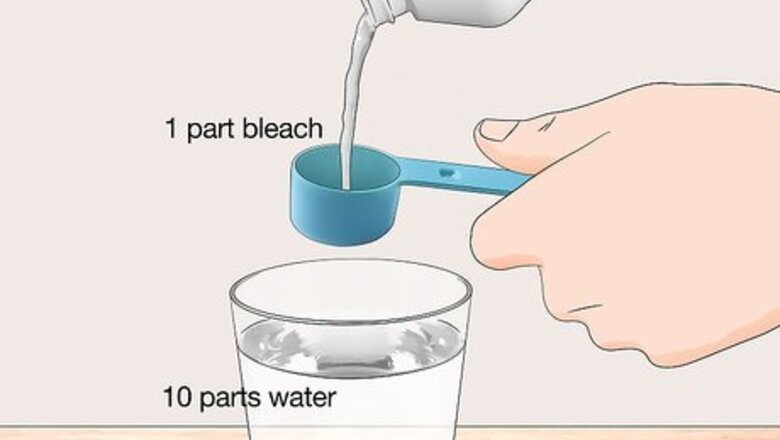
views
Head
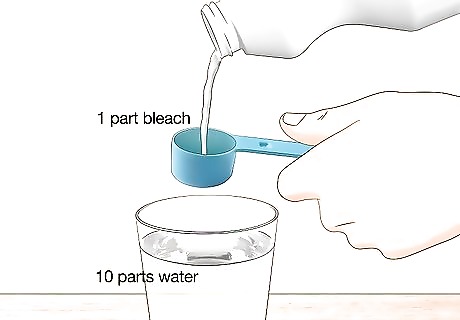
Mix 1 part bleach with 10 parts water. Once a month, give your toothbrush a deep clean using bleach and water. Mix one part bleach with 10 parts water in a small container, like a cup. Make sure the container is big enough that you can submerge your toothbrush's head completely. Put on some rubber or latex gloves before you work with bleach to avoid any skin irritation. If you don’t want to mess with bleach, you can also use plain mouthwash or hydrogen peroxide.
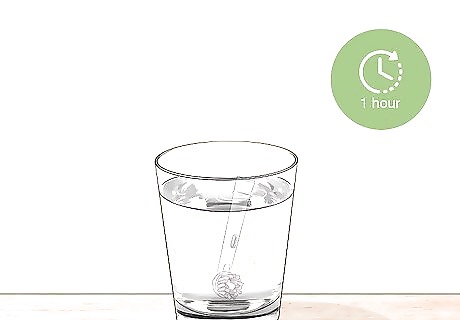
Soak your toothbrush head in the mixture for 1 hour. Make sure the head is fully submerged in your mixture, then set a timer for 1 hour. The bleach will work to disinfect and clean your toothbrush head, getting rid of any germs or bacteria. Try not to leave it in for much longer than an hour! Bleach is very strong, even at this dilution. Make sure your container is somewhere up high and out of the way of kids and pets.
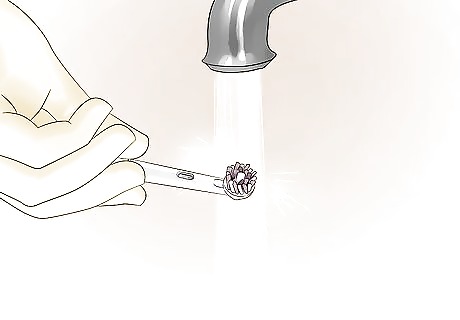
Rinse your toothbrush thoroughly. Grab your toothbrush head out of the water and rinse it in the sink. Keep rinsing until the water runs clear and you don’t smell bleach on your toothbrush anymore. It’s not safe to use a toothbrush with bleach residue on it, so make sure it’s rinsed really well.
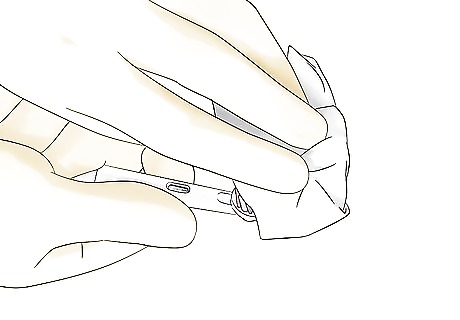
Wipe the toothbrush head down and set it out to dry. Grab a clean towel and wipe your toothbrush head off as best you can. Set your toothbrush head on your counter or in your bathroom to dry out completely to avoid any mold or mildew. A wet toothbrush can lead to slimy gunk getting caught in the handle, and no one wants that!
Handle and Base
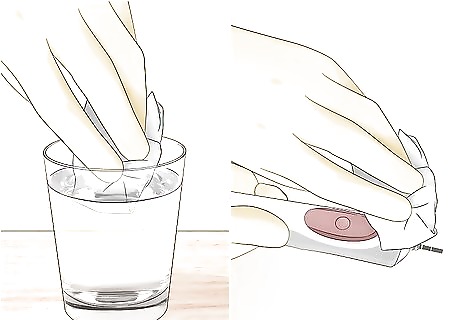
Rub a cloth dipped in bleach water over your toothbrush handle. To clean the body of your toothbrush, you should also use your bleach and water solution (1 part bleach to 10 parts water). Dip a cloth or cotton pad in the solution, then swipe it along the body of your toothbrush, focusing on any areas that have mold or water buildup. Always unplug your toothbrush before you start cleaning it. Before you start working with bleach, put on some gloves to protect your skin from irritation.
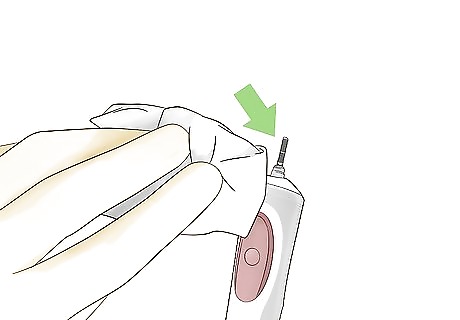
Wipe out the metal post that attaches to the toothbrush head. If your toothbrush head is detachable (most electric toothbrush heads are), there’s usually a small metal post sticking straight up. This post can collect a lot of water and bacteria, so it’s important to use your cloth and really scrub it out. If the cloth isn’t quite enough, grab a cotton swab and dip that in the bleach mixture, then use the tip to dig into the crevices. If your toothbrush smells bad and you can’t figure out why, it’s probably because there’s mold in this little area.
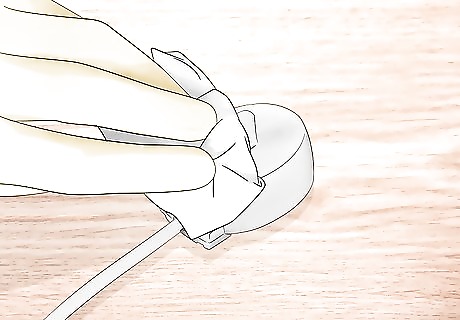
Use your cloth on the toothbrush base. Most toothbrushes come with a charging base that can accumulate water and toothpaste buildup. Use your same cloth to wipe off the top and the bottom of the charging base, staying away from the cord or the outlet part. To keep your base clean over time, try to wipe it off whenever it looks wet. This will help keep mold and mildew at bay.
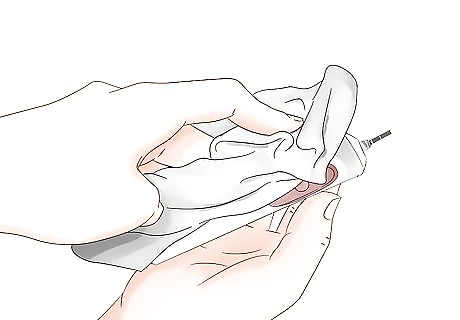
Wipe your toothbrush handle dry. Take a clean cloth and wipe the entire thing dry before you put the head back on. Trapped moisture can lead to mold and mildew, so it’s important to dry your toothbrush handle off every time you get it wet. You should never submerge your toothbrush body in water, since that can lead to an electric shock.
Everyday Maintenance
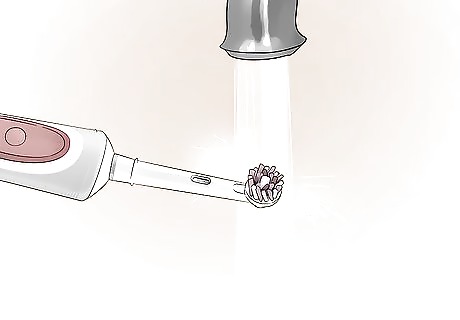
Rinse your toothbrush head and handle every time you use it. When you use your toothbrush, a little bit of toothpaste will always get stuck in the bristles, making them sticky. When you’re done brushing your teeth, rinse the head and the handle with running water until your toothbrush looks clean again. Rinsing your toothbrush keeps it clean, which makes it better for cleaning your teeth.
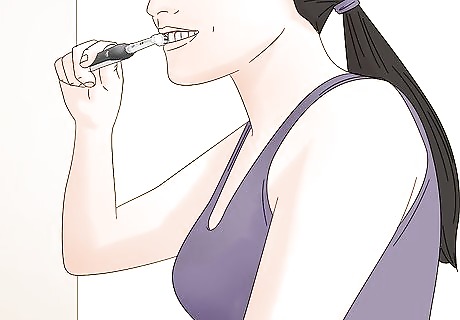
Avoid pressing your toothbrush onto your teeth too hard. If you’re brushing your teeth with an intense amount of pressure, your toothbrush bristles are going to wear out much faster than usual. When you brush your teeth, use gentle pressure that doesn’t bend the bristles to keep your toothbrush around for much longer. If you notice that your bristles are bent or flattened, it’s time to get a new toothbrush head.
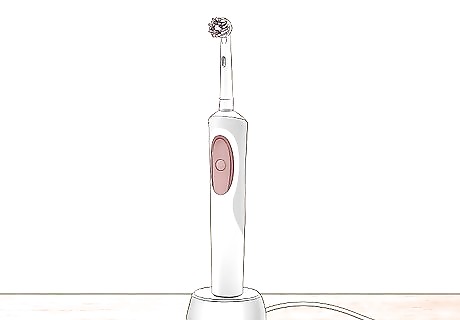
Store your toothbrush upright. This will let your toothbrush drip dry much better than if you lay it on its side. You can set it on your sink, the counter, or plug it into its charging base, if it has one. Try not to put your toothbrush in a closed container, since this could lead to mold or bacteria buildup.
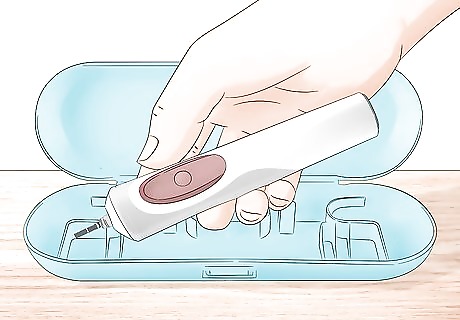
Keep your toothbrush in a travel container when you’re traveling. If you’re taking your toothbrush with you on the go, don’t leave it open and loose in your bag. Buy a travel toothbrush container made specifically for electric toothbrushes to protect the bristles from dust and dirt as you adventure around the world. Don’t forget to bring the charger!
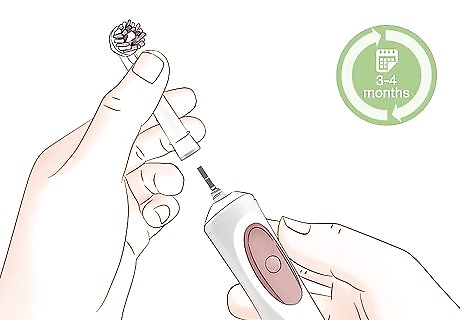
Replace your toothbrush head every 3 to 4 months. You can find new toothbrush heads online or at most home goods stores. Switch out the head and throw away the old one to keep your toothbrush in tip top shape.













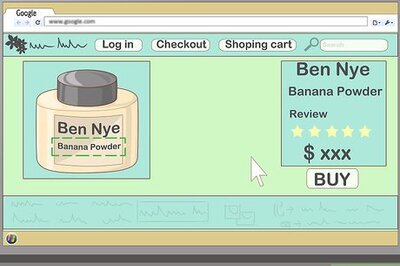
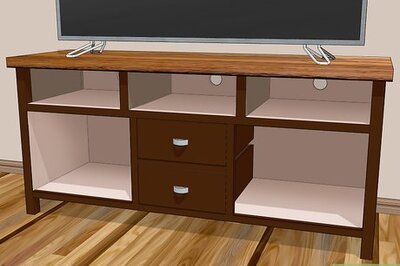




Comments
0 comment